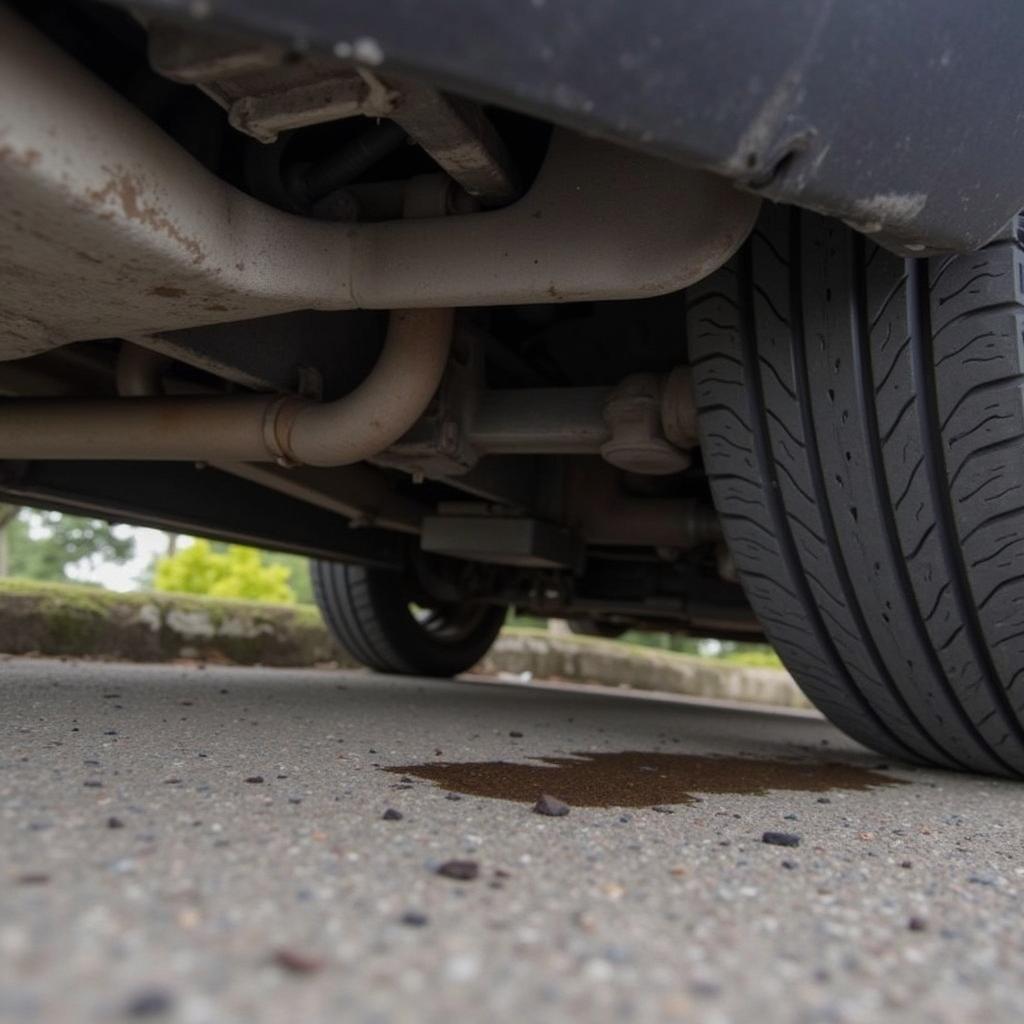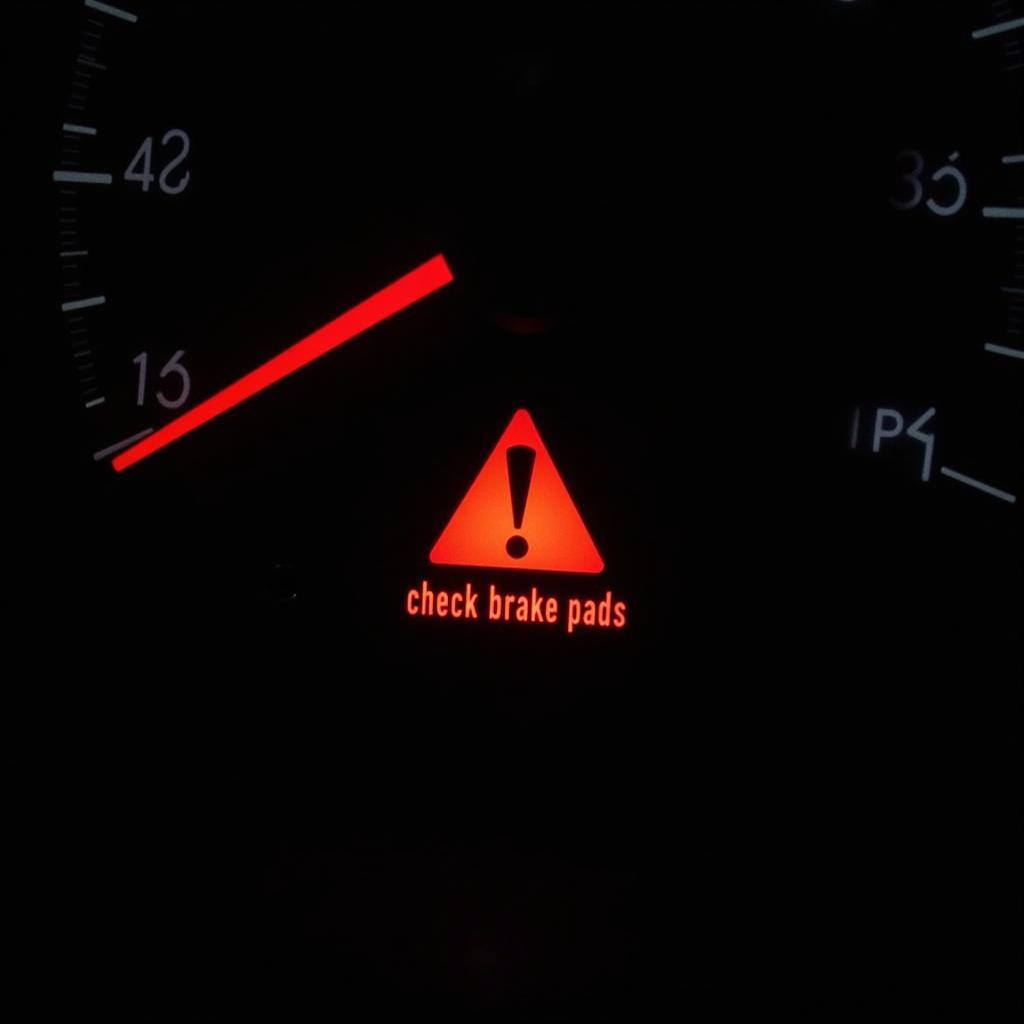The Skoda Fabia is a reliable and popular car, but like any vehicle, it can experience issues. One common problem that can arise is the brake fluid warning light illuminating on the dashboard. This light is a crucial safety feature, designed to alert drivers of a potential issue with the braking system. Ignoring this warning light could compromise your ability to brake effectively, putting you and others at risk.
This comprehensive guide delves into the common causes behind the Skoda Fabia brake fluid warning light and provides potential solutions to help you address the issue safely and effectively.
Understanding Your Skoda Fabia’s Brake Fluid Warning Light
The brake fluid warning light is typically represented by a circle with an exclamation mark inside, enclosed by parentheses. This symbol is universally recognized as a brake system warning. When this light comes on, it usually signifies low brake fluid levels, which could be due to:
-
Worn Brake Pads: Over time, your Skoda Fabia’s brake pads naturally wear down. As they thin, the brake calipers need more brake fluid to engage the pads with the brake rotors, leading to a drop in fluid level.
-
Brake Fluid Leak: A leak in your brake lines, calipers, or wheel cylinders can also cause a significant loss of brake fluid, triggering the warning light.
-
Worn Brake Master Cylinder: The master cylinder plays a vital role in pressurizing the brake fluid. If the master cylinder’s seals wear out, it can result in fluid leakage, triggering the warning light.
What to Do When the Brake Fluid Warning Light Comes On
If your Skoda Fabia’s brake fluid warning light illuminates, it’s crucial to take immediate action:
-
Safely Pull Over: As soon as it’s safe, carefully pull over to the side of the road.
-
Check the Brake Fluid Level: Locate the brake fluid reservoir under the hood of your Skoda Fabia. Consult your owner’s manual for its exact location. Carefully open the reservoir cap and visually inspect the fluid level. Ensure the engine is off and has cooled down before opening the reservoir.
-
Add Brake Fluid (If Necessary): If the brake fluid level is low, carefully top it off with the correct type of DOT (Department of Transportation) brake fluid specified in your owner’s manual.
-
Avoid Driving (If Level is Significantly Low or Leaking): If you notice a significant drop in brake fluid or suspect a leak, avoid driving your vehicle. Driving with very low or leaking brake fluid is extremely dangerous and can lead to complete brake failure.
 Skoda Fabia Brake Fluid Leak
Skoda Fabia Brake Fluid Leak
Addressing the Root Cause
While topping off the brake fluid can provide a temporary solution, it’s crucial to identify and address the underlying cause of the low fluid level:
1. Worn Brake Pads: If your brake pads are worn, they will need to be replaced. You can visually inspect the brake pads by looking through the spaces between the wheel spokes. If the pads are less than 1/4 inch thick, they are due for replacement.
“Remember, neglecting worn brake pads not only triggers the warning light but also compromises your braking efficiency,” advises seasoned mechanic, John Miller. “Regular brake inspections are essential for maintaining optimal safety on the road.”
2. Brake Fluid Leak: Locating a brake fluid leak can be tricky. Look for signs of fluid leaks around the brake lines, calipers, and wheel cylinders. If you suspect a leak, it’s best to have a qualified mechanic inspect and repair the issue.
3. Worn Brake Master Cylinder: Diagnosing a worn brake master cylinder requires expertise. If you suspect this is the issue, it’s best to consult with a certified mechanic.
Don’t Ignore the Warning
The brake fluid warning light is a crucial safety indicator in your Skoda Fabia. Ignoring it can lead to serious consequences. By understanding the causes behind this warning light and taking prompt action, you can ensure your safety and the optimal performance of your vehicle. If you’re ever unsure about addressing any brake-related issues, it’s always best to err on the side of caution and consult with a qualified mechanic.


